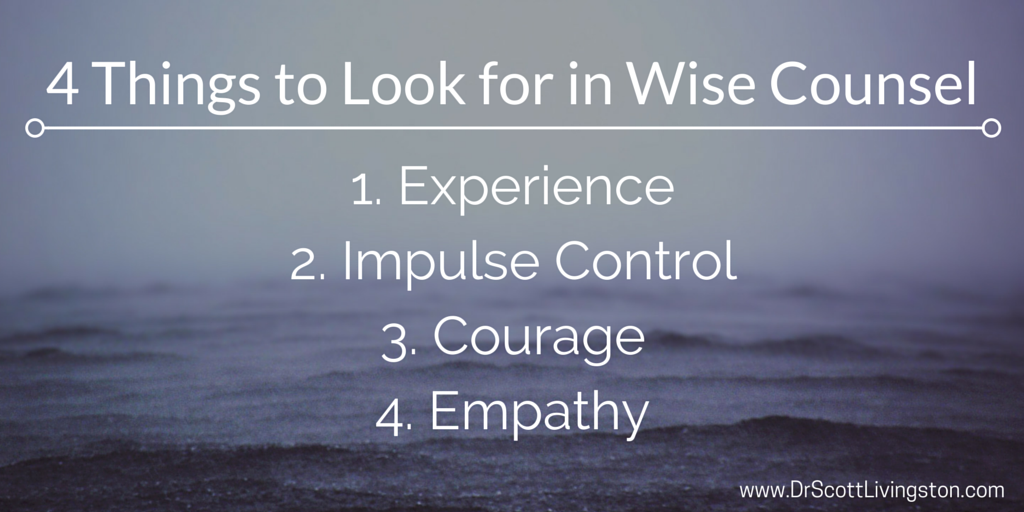Who wants to fail as a leader? No one.
None of us wakes up in the morning and says, “Let me see how I can totally screw up the thing I am working on today."
And yet…Here is my story.
A number of years ago, I had been a fairly successful sales professional and tapped for a management development program. The company I worked for was growing like crazy. Most people spent less than 2 years in this program before they were tapped for their first management level job. I thought I had arrived! Look at me! Watch me climb! Nothing will stop my career! These were all thoughts I had at the time. I was on top of the world and it felt great.
My wife and I moved from my sales territory in Decatur, Illinois to the corporate headquarters in Indianapolis, Indiana. Our family consisted of my wife and I along with our 2-year-old son Zach, and a precious baby girl due in about 6 weeks. The plan was to be in Indianapolis for less than 2 years before our next move into my first management level job. So, I did what every person with a dream, a wife, and 2 young kids does….
I went out and bought a 2 seat sports car.
I rationalized it by telling myself, "Hey, we already own a minivan. No problem."
Fast forward 5 years later. That's right, my 2-year window for promotion had gone to 5! The company hit a tight spot. No one got promoted for 3 years beyond my 2-year window. And on top of the career slow down, my wife and I had another baby boy! We were now a family of 5, with a minivan and a second car that is a Mazda Rx 7.
Great car, yet totally not practical when my wife took the minivan to go shopping one Saturday and left me with the 3 kids and a couple of friends kids. Scott and 5 kids on a Saturday morning, normally not a problem, until Zach comes out holding his hand over his eye and blood dripping down having just been whacked on the head with a toy by one of the other kids.
Question: How do I get 5 kids and me in the Rx7 and to the hospital to get Zach stitched up?
The Lesson
There is an ancient Proverb that says “Before his downfall a man's heart is proud."
I will admit it. I was full of pride. Proud of my career. Proud of my family. Proud of how I had achieved.
What is the problem with pride? It blocks your vision of reality. As leaders, we puff ourselves up for everyone to see.
What are some things that feed our pride as leaders?
1. People come to you for decision making.
2. People look to you for safety (job security).
3. People look to you as an expert in your field.
4. People feel comfortable knowing you are there.
5. You make people feel they are important.
6. You give people a feeling of optimism.
7. You give people a sense of hope.
8. You are near the top of the food chain.
9. People seek your advice and counsel.
10. Your opinions are sought and considered.
The great writer CS Lewis says that the problem with your pride is that it is in competition with everyone else's pride. Pride at its very root is competitive. “Pride gets no pleasure out of having something, only out of having more of it than the next man,” according to Lewis.
More money. Bigger house. Better looking. Smarter. Prettier wife. More loving husband. Most successful kids. Harder worker. Coolest job.
The problem with pride is not the metric, but what we do with it. It is in our nature to compare. It is how we know where we are. The problem with pride is an inability to be content and a desire for control. It is a scarcity mentality that says “for me to be up in life, you must be down.”
This is a lie.
Great leaders find ways for everyone to be up.
What I have learned over the years is that when I begin feeling like this, full of pride, I better watch my next step.
The Vaccination
When things go wrong, we begin to think about treatment. Treatment is about fixing the problem. Vaccination, however, is about prevention.
Treatment in the medical world is meant to help you recover from something that has happened to you. A vaccination is meant to prevent the disease in the first place.
The second part of the Proverb I mentioned above states, “but humility comes before honor."
Being humble. Putting others ahead of your pride. Being modest in your opinion of yourself. Thinking of others as better than yourself is one way to overcome pride.
The question I have been asking myself is, are there any strategies for preventing pride in the first place?
How can you vaccinate yourself against pride that often accompanies Leadership?
Here is a shot in the arm that can help you prevent Leadership Pride. This might sting a little, but here comes the needle...
Seek Wise Counsel.
That didn’t hurt too bad, did it?
Looking back on my story, I really should have sought wise counsel about buying that car. Not only was it impractical, but the assumptions I used to frame my reality regarding my career and my family were askew. They just were not based in reality. Just because the business was in an up cycle didn’t mean it was going to stay that way forever. Some wise counsel at that time could have been just the vaccination the doctor would have prescribed to prevent me from making such a poor decision.
There is another Proverb that says “Without counsel plans are frustrated, but with many counselors, plans succeed."
As you are thinking about getting wise counsel in your life, what should you look for? Here are a few things I have found as I have researched the topic:
4 Things to Look for in Wise Counsel:
Experience. Why not ask someone who has been down the road what the path looks like?
Impulse Control. Look for someone who is not going to be swayed by your emotional rationale. You do not want someone who will agree with you all the time. You want another perspective on what reality looks like. A person who is patient enough to hear you out.
Courage. Having an ability to disagree with you is paramount to you being able to learn and grow.
Empathy. Someone who can see your perspective even if they do not agree. Empathy differs from sympathy in that the empathic person will ask the hard question when it is in your best interest. The sympathetic person will just agree with you in whatever state you are in.
So often in leader development, we screw up and look for a treatment remedy for what has happened. Why not look to prevent these potential failures in leadership by vaccinating yourself against tragedy? Seeking wise counsel may be one good shot in the arm for you as a leader.
Homework
Look for a leadership decision you have coming up. Seek out some wise counsel. Lay the topic out for those you are seeking input from, without bias or telling them your preferences. Consider what they say to you before you act.




